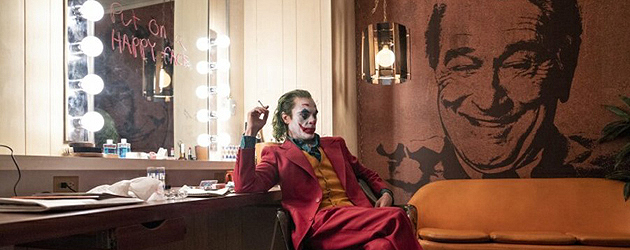Mark Friedberg

AS: Bo Welch talks about “cracking the code” of a movie. Is that what you’re talking about?
MF: My process is about balancing the two lobes of my brain. The logical and the emotional. I’m a painter in my heart. But when I start a painting and say “I want it to be like this” it’s never good. And when I just throw paint around a room it’s never good. The trick is to find that Buddhist moment where you’re leading the brush and the brush is leading you. I’m building a world and it might be set in a period and require visual effects to support it, but I’m also telling a story which is usually more about emotional logic than historical veracity. I usually start on the literal side and start making lists, both in words and images. Then once I have a strong structure I let myself go and find the character, both in the world and the world from their point of view.
AS: When you first get a script is it a matter of coming up with that structure?
MF: I used to be very scientific about it because I didn’t want to get it wrong. Partly because I didn’t know that I knew how to do it, because I hadn’t done it for very long and didn’t completely trust myself yet. It’s funny the older I get and the more experienced I get, the more I’ve learned not to rely as much on process and to simply trust my instincts. I remember there being a point when they asked what I thought it should look like and I realized that the only wrong answer was not to trust what I instinctually thought. They hired me because they wanted it to look like how I felt it should look and that was the right answer. It wasn’t about getting it wrong or right, it was about, What do you think? How do you feel? When I was younger and prepared for interviews I used to just want to get the job, so I’d try to make sure I got what I thought they’d want. And now I’m like, This is me. This is how I see it. If that is not what they wanted, great, glad we found out early. There will be another job.
AS: When does the process start?
MF: The first reading of the script, which is usually before I’ve met the director, is the most critical. That’s the tabula rasa, the blank slate. Usually I’m seeing the movie as I read it so the first time I see/read it is my purest interpretation and often the most interesting. I’ve learned how vital that part of the process is and to trust what I feel first.
AS: Are you taking notes as you go through it?
MF: No. I used to take notes and now I don’t do it. I read it and I try to see it because I don’t want to get in the way of the primal experience of the story, much like a viewer. I want to see what I see. The first reading I just try to read it. I might read it with a Hi-Liter and jab at a few set names as I go but I don’t want to stop. And I try to read it all the way through. Then I go back for a second reading, sometimes right away, and then I start hitting the keys on the computer.